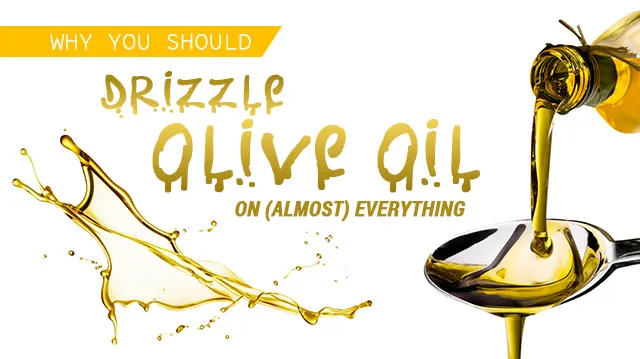Almost everyone knows that olive oil is healthier than, say, french fry oil, but still most Americans do not consume much olive oil. Compounding the issue is the fact that much of the olive oil sold today in supermarkets actually contains only a small part olive oil with cheaper oils, such as canola oil, making up the bulk of the product. However, real olive oil provides many health benefits and may be the healthiest oil you can eat. After reading about the health benefits of olive oil, you may make olive oil the next must-have for your kitchen.
The health benefits of olive oil
Numerous studies have shown positive health benefits from consuming olive oil. Olive oil provides the biggest benefits for:
Heart health
A study published in Pharmacological Research in 2007 found that individuals who are regular consumers of olive oil are less likely to develop heart disease, high blood pressure, high cholesterol or have strokes. Olive oil can also reduce the inflammation in blood vessels that causes heart problems.
Depression
A study published in PLOS ONE that followed 12,000 volunteers over a six year period found that olive oil had a protective effect against depression. On the other hand, individuals who ate trans fat on a regular basis were 48 percent more likely to develop depression.
Breast cancer
A study from 2014 published in Cancer Treatment and Research found that olive oil provides protective effects against breast cancer. Olive oil contains unique compounds that encourage the death of breast cancer cells and trigger the healthy growth of new cells. Corn oil caused tumors to grow, but olive oil caused them to shrink.
Alzheimer’s disease
Olive oil contains a compound called oleocanthal, which has been shown in animal studies published in Chemical Neuroscience to remove from the brain the proteins that cause Alzheimer’s disease. Ecological studies have found that in countries where olive oil consumption is high, the elderly are less likely to develop Alzheimer’s disease.
Is your olive oil real?

Is olive oil safe when cooked?
At high heats, polyunsaturated fats break down and oxidize, causing inflammation and other health problems. But as a monounsaturated fat, true olive oil is not as easily oxidized. A 2010 study published in Food and Chemical Toxicology tested the safety of cooking with olive oil. The researchers found that it took over 24 hours of heating olive oil at 350 degrees before it started to oxidize. As long as you don’t heat olive oil past 375 degrees Fahrenheit, you should be safe to use it as a cooking oil.
Where to use olive oil
- Dressing for salad, mixed with balsamic vinegar
- Sauté vegetables in olive oil
- Drizzle olive oil on bread
- Scramble eggs in olive oil instead of butter
- Replacement for butter
- Replacement for canola oil in recipes
- Steak marinade
- Cooking oil
- Frying oil
It doesn’t take much to switch to using olive oil. You may want to try a few varieties, as the flavor of olive oil can vary from strong and nutty to mild and fruity. Like a wine connoisseur, you will soon find the brand you like best and look forward to its taste on your food.
-Brenda Priddy
Sources:
http://public-files.prbb.org/publicacions/d7e3dd90-4e6a-012a-a764-000c293b26d5.pdf
http://journals.plos.org/plosone/article?id=10.1371/journal.pone.0016268
http://www.ncbi.nlm.nih.gov/pubmed/24114487
http://pubs.acs.org/doi/abs/10.1021/cn400024q
https://www.cooc.com/certification-process
http://www.ncbi.nlm.nih.gov/pubmed/20678538
http://www.oliveoilsource.com/page/olive-oil-tasting-terms
